This “Limited Edition” Blu-ray from Radiance Films is currently available for purchase.
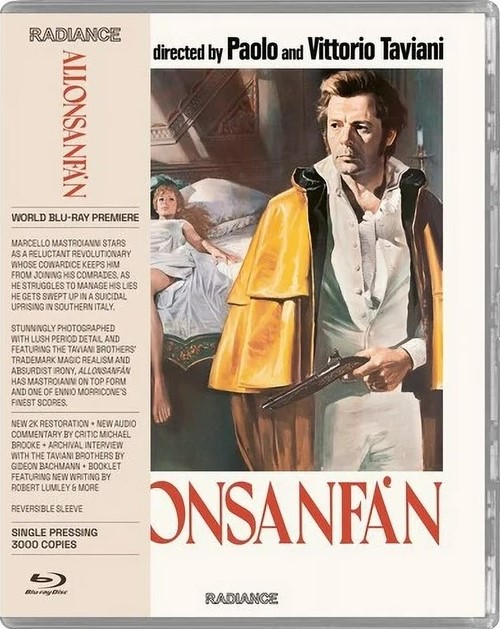
Revolutions are a tricky proposition. After the fact, many are written up in almost mythic terms, but the truth is always a bit more complicated. Most are complete and abject failures. Italian filmmakers Paolo and Vittorio Taviani tried to deal with this concept in Allonsanfan. Unfortunately, critics and audiences weren’t sure what to make of it all during its initial release. While respected by some in Italy, just as many were irritated by their presentation of the lead. And while the picture earned plenty of admirers in France, it could barely get a release in the United States.
Honestly, it’s easy to see why. The movie doesn’t feature a noble protagonist, but more of a self-preserving central character willing to do anything (including sacrifice those around him) in order to save his own skin. This generally goes against the heroic code present in most titles from the US. However, the novel approach does make the movie very interesting to watch. Not every element works, but it is unpredictable and leads viewers down a strange and ultimately tragic path.
The story is set in the 1810s and follows Fulvio Imbriani (Marcello Mastroianni) a noted aristocrat and revolutionary leader who helped the Jacobins secure victory in the French Revolutionary Wars (before they were removed from power). But his plans to bring change and unification to Italian districts run by monarchies aren’t as successful. As the film begins, he has been locked up in a prison for several years and has aged behind bars. Fulvio is unexpectedly released by authorities, who are using his release for their own ulterior motives. They announce that Fulvio has given them details on his revolutionary group, known as the Sublime Brothers, in the hopes that it will draw the hidden figures out for revenge. The plan works perfectly. The group immediately kidnap Fulvio and brand him a traitor. After convincing them of his innocence, his life is spared, but the lead can see the writing on the wall, especially with armed forces closing in.
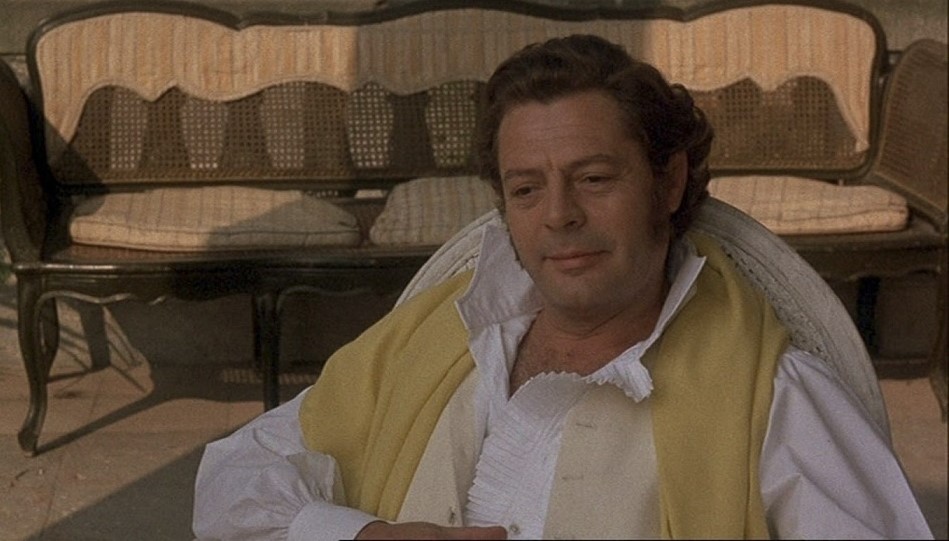
He decides to run away and hide with family members. The story continues with the figure trying to evade his fellow revolutionaries, as well as authorities. It doesn’t go well, with a past love (Lea Massari) suddenly appearing with Fulvio’s son Massimiliano (Ermanno Taviani) whom he has never met. She promises funds to help his group with weapons in order to start an uprising in Sicily. However, Fulvio instead plots against his revolutionary friends, hoping to escape the continent and make a new start in America.
The character is constantly trying to manipulate every situation to his advantage. This includes using the aforementioned funds on his personal plan (and using some of it for upper-class entertainment with his peasant son) and ultimately having to cover his tracks with murder. However, over the course of the story he finds that many others, including his later revolutionary lover named Francesca (Mimsy Farmer), are equally if not better skilled at this kind of maneuvering. Many within the group are at odds and its fascinating to see them occasionally turn on each other. As he is unwillingly pushed towards an actual battlefield, Fulvio also meets one of the few earnest revolutionaries, a young man named Allonsanfan (Stanko Molnar).
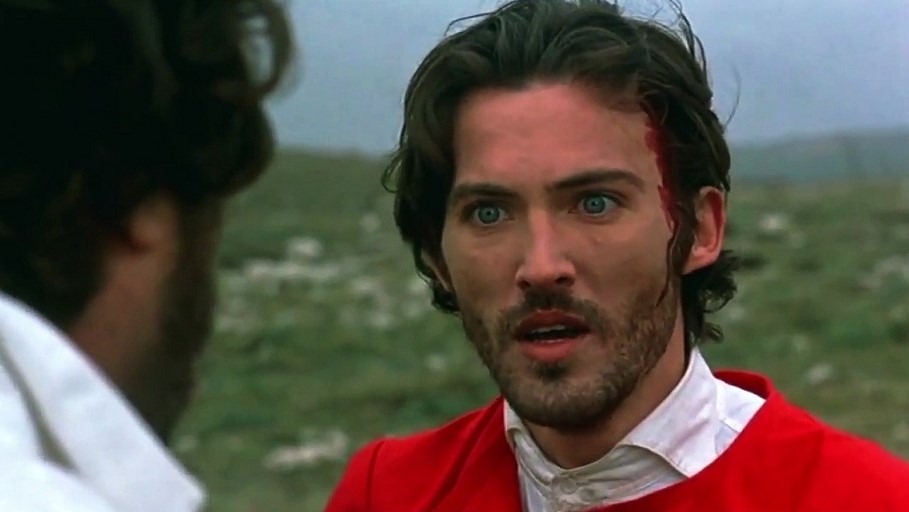
Given the cunning and deeply flawed nature of the protagonist, it could easily have been difficult for audiences to relate to the main character. Thankfully, Mastroianni is such a charismatic lead that he manages to keep viewers curious. Fulvio gets himself in a great deal of trouble and it’s fascinating to watch him wrangle himself out of it (although his own flaws often end up getting him into even deeper turmoil). The movie delivers an intriguing character study of an aging revolutionary who doesn’t see any hope for this latest campaign and wants to remove himself from it, but having to contend with committed compatriots who won’t let him walk away.
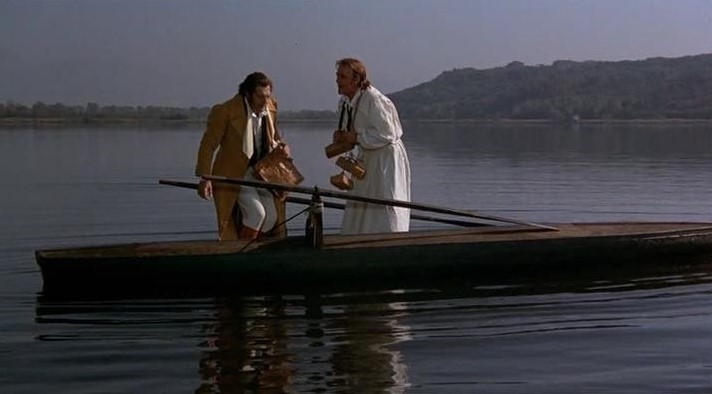
While there isn’t a cast of thousands or elaborate battle scenes in this historical epic, there is still plenty of impressive imagery. There are some interpretive shots during a fracas that leave an impression and the exterior locations are quite striking. The climax, featuring a group of unworldly peasants racing across a field with pitchforks to tear apart depleted revolutionaries who are only there to help them, leaves a lasting impression.
There are slow spells and some exaggerated melodrama between Fulvio and his female love interests, but first-time viewers will find a lot of twists and turns and a thought-provoking film on their hands. It’s certainly a better feature than it was given credit for during its original run. At least while this picture struggled to impress at the time, Paulo and Vittorio would end up critical darlings with their next feature Padre Padrone (1977), which is considered one of the best Italian movies ever made.
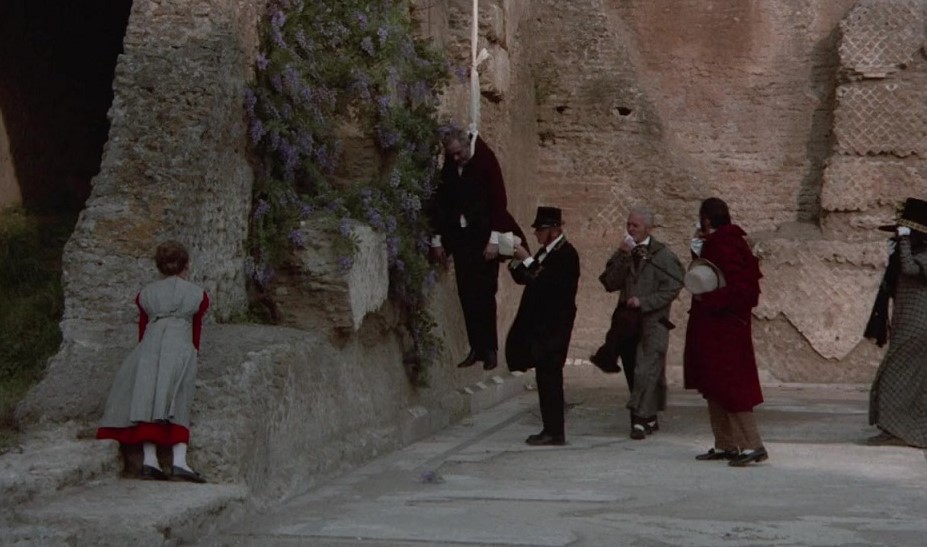
The 2K image restoration from the original negative for this Blu-ray looks solid. There is some grain in darker sections that take place at night, but the overall picture is sharp and appealing (certainly better than any previous edition that would already be scarce). The daylight exteriors, including a lakeside scene and the finale, are beautiful to witness.
The disc contains an excellent film historian commentary from critic Michael Brooke. He offers a lot of insight and deeper meaning behind what is occurring onscreen and how many of the revolutionaries in the movie are at odds. It’s also a good history lesson. You’ll learn that Italy wasn’t a fully formed nation at this point in history (Austria was running many areas until 1815). There is a fascinating analysis on the use of color with characters and how their garb adds meaning (Fulvio is often dressed in yellow hues while conning others). He also notes the lives of some of the real individuals and revolutionary groups that the story is partially based on.
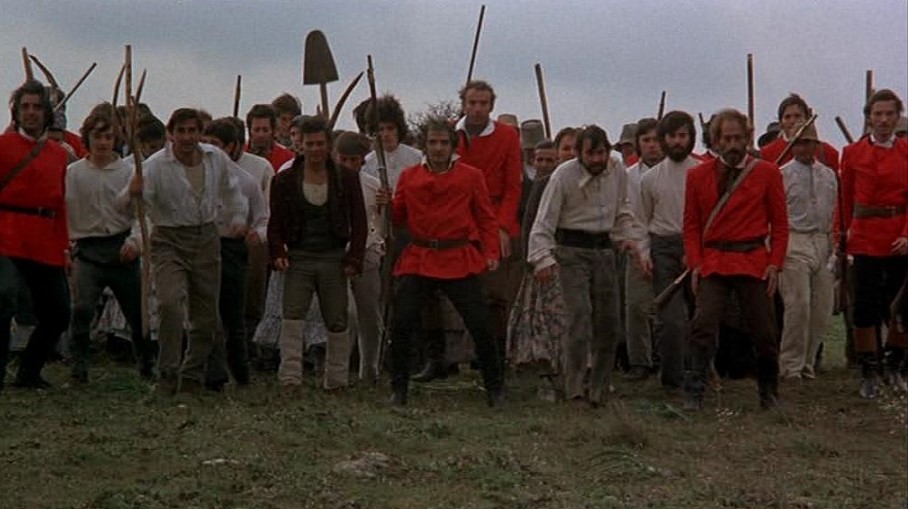
There’s also a lot of great discussion about the controversy the film caused. He mentions that the left-wing filmmakers found themselves being verbally attacked by many attendees at the premiere who were unimpressed by the portrayal of the Fulvio character. The directors simply wanted to present a complex and gray character, also showing how coups often don’t go as planned. Apparently, many of the angry individuals ended up being a part of the political violence that occurred in the country during this period. There is a lot of great detail here and it’s one of the most informative commentaries I have heard in some time.
Additionally, there is a heated hour-long archived audio interview in which a film critic interviews Paolo Taviani along with contemporaries Florestano Vancini (Seasons of Our Love, The Assassination of Matteotti), Nelo Risi (Diary of a Schizophrenic Girl) and Anna Gobbi (Lo Scandalo). The interviewer persists that there must be a common ethos between the filmmakers. He also asks them about the future and imminent death of cinema (seems like this discussion has been happening for some time). The conversation gets heated as the directors ultimately team up to dismiss many of the arguments made by the movie expert. They appear to rightly insist that while they may all be influenced by the current state of the country, their personal inspirations and intentions are their own and that they aren’t trying to present a unified front together. It’s entertaining to listen to the passionate back and forth.
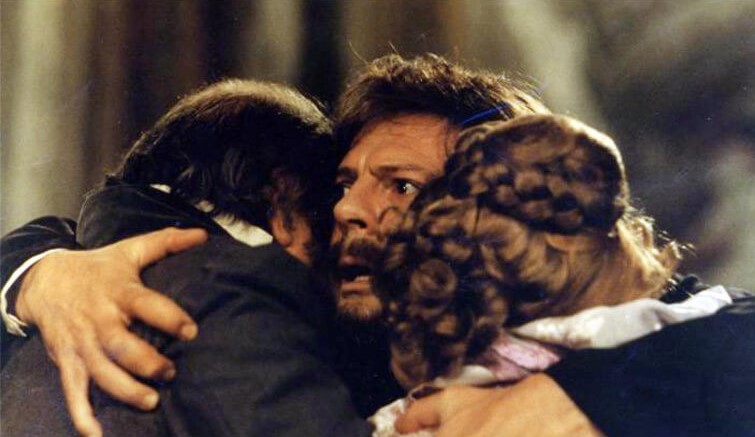
The Blu-ray also includes a trailer and comes with a booklet containing new writing on the movie and a newly translated interview with the Taviani Brothers.
In the end, Allonsanfan is a very interesting and unique feature that will certainly impress international film enthusiasts and anyone who appreciates Italian cinema should check it out.


